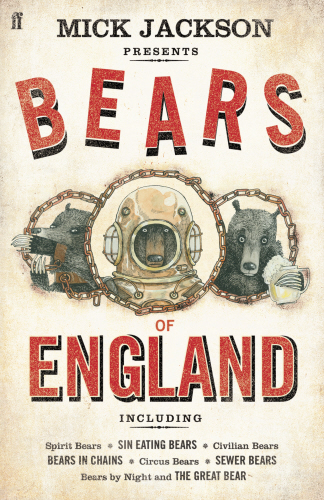Jackson spent several years exhaustively trawling and dredging every known ursine archive for these lost, forgotten and hidden tales. And don’t expect anyone to thank him for his efforts. Archivists have very long memories. They are the type to bear a grudge.
In Ancient England the bear symbolized everything wild and primitive – was feared and hated in equal measure. The earliest recorded stories tell of bear-spirits, which rose up at dead of night and commandeered the landscape … of villagers too terrified and appalled to confront them … and finally of men, dressed in foliage, who crept out among the bear spirits to try and placate them.
The history of bears as deities and sin-eaters is well-recorded, but the details have always remained sketchy. Until now.
The Circus Bear break-out near Bristol has been mentioned in some of the more obscure publications, but Jackson has made several new discoveries, regarding firearms and drunkeness and sexual fantasies involving trapeze artists. But none of it relayed in anything like a smutty way.
But surely the tour de force is the dragging out into the daylight of the wretched way in which bears have been mistreated – from the bear pits of London in the 15th Century, how they were hunted or at best neglected … how indeed they were kept locked in the sewers of London in the 19th Century.
Perhaps strangest of all are those bears who attempted to inveigle their way into human society. But, perhaps given the dreadful way that they were treated as bears, who could blame them? What’s odd is that, either their true identity was never suspected, or it was known and tolerated. Finally, they say fact is stranger than fiction. Indeed, who could argue when confronted with a bear in a deep sea diving outfit, carrying a coffin to a graveside in an underwater village?
Then, of course, there is The Great Bear Exodus. And the shocking finds in the ground of the westcountry, not to mention what the bears did with them. But that will all be revealed, in time.
It is too early to assess the impact of such a book. Perhaps that is no bad thing. In fact, wouldn’t it be better, people sometimes say, if Jackson simply stopped scratching away at the edges of society and let us forget about what’s odd and wrong and disturbing with our world?
